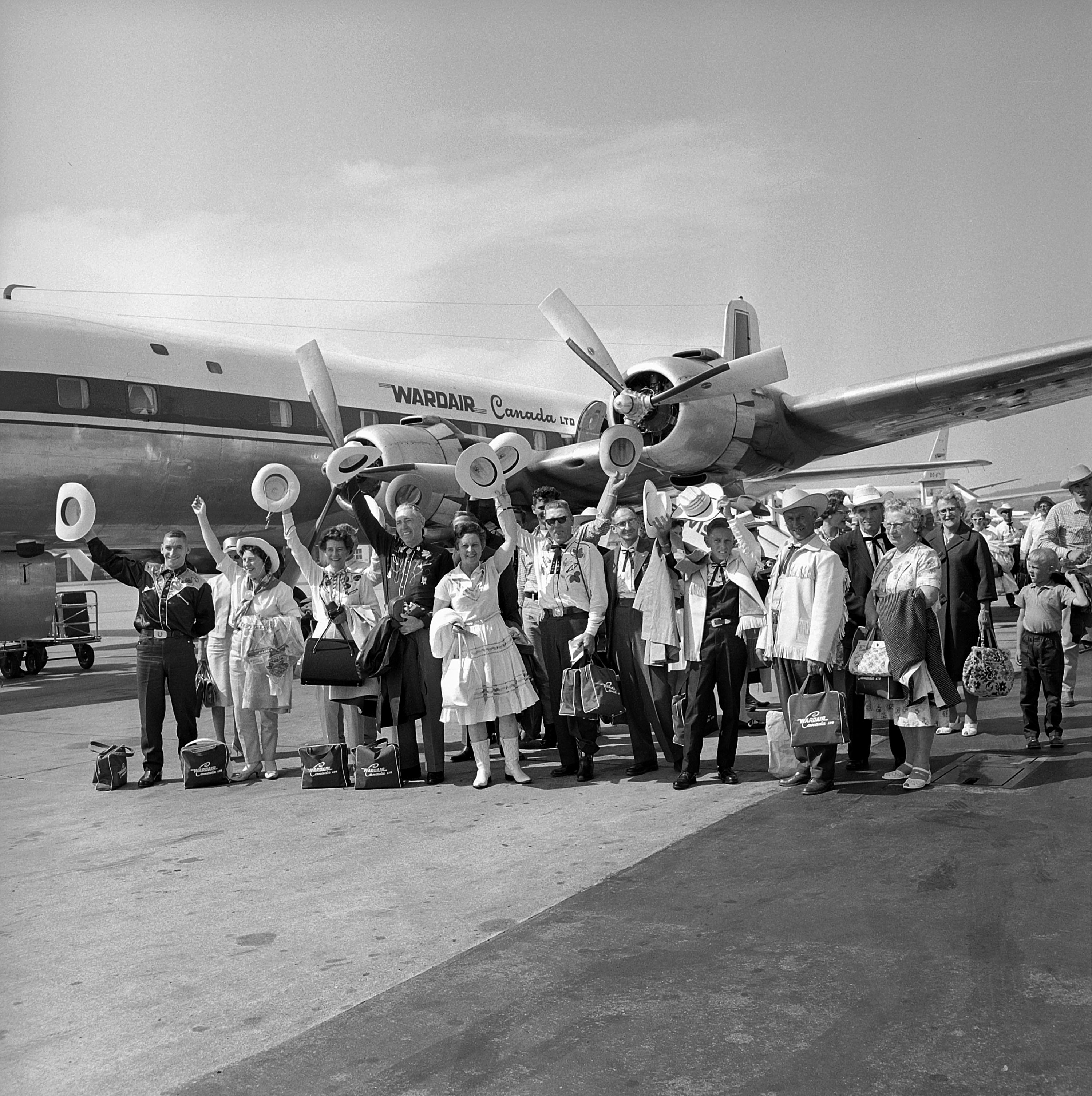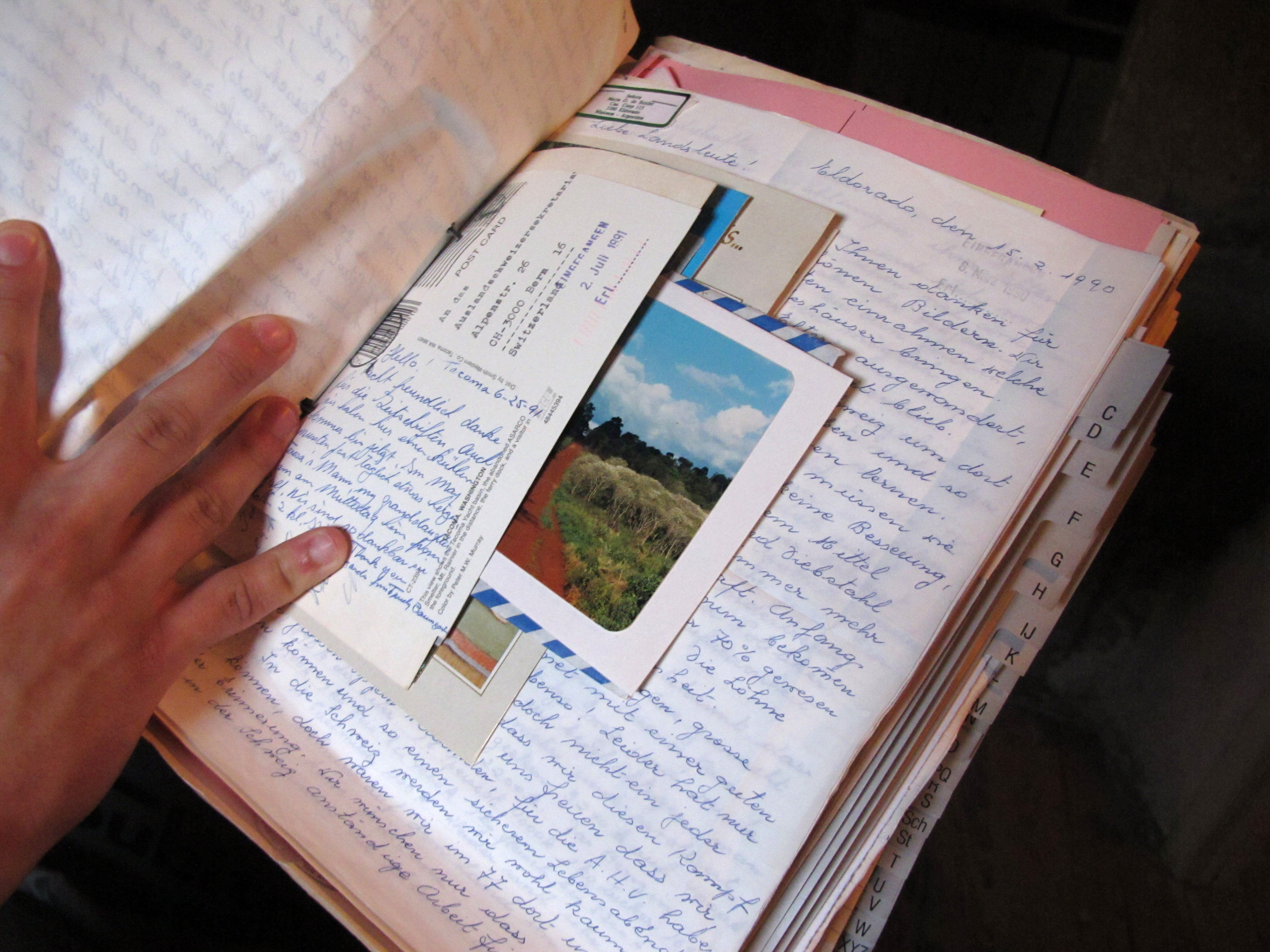“Swiss history has also been made elsewhere”

Eminent experts are calling for the creation of a special institute and a lexicon to sum up the wide-ranging and varied research on the history of Swiss emigration. They say a broader view on the larger issue of migration is also needed.
A systematic approach would paint a fuller picture of Swiss émigrés, including the multitude of reasons for going abroad over the past century and the influences on them of their chosen states.
While today about 700,000 Swiss live abroad, no reliable figures existed before the second half of the 20th century.
For Leo Schelbert, a former professor at the University of Illinois in Chicago, the time is right to make a synthesis of all the work that has been done and is still underway.
“The younger generation of academics seems to be open to the history of Swiss emigrants,” Schelbert explains. Globalisation and modern means of telecommunication, notably the internet, have helped raise a general awareness of “the oneness of those abroad with those at home.”
Brigitte Studer, professor of history at Bern University, puts the growing interest in the Swiss abroad into an academic context described as a “transfer of cultural values”.
“It is about de-compartmentalising Swiss history, to overcome a national view and to pinpoint how ideas circulate across borders,” she explains.
Crucial information on the expatriate community risks getting lost if there is no conscious effort to focus and institutionalise research, she warns.
Growing interest
Studer welcomes Schelbert’s proposal and she is joined by her colleague Georg Kreis, professor at Basel University. He draws a parallel between an increasingly mobile society and the apparent wealth of historic studies on the expatriate community.
Kreis is convinced that this aspect of the past merits special attention. Nevertheless he cautions it must not be weighted too heavily in the syllabus of university education.
He adds institutions exist which focus on migration issues, notably at Neuchâtel University.
Encouraged by the response from academic circles, Schelbert sees closer cooperation between Swiss universities as well as with other institutions.
“My idea is to link a future institute on expat history with museums and schools. The knowhow would not remain in an ivory tower but spread wide to form our national collective consciousness,” he hopes.
Changing role
Sacha Zala, director of the research project, Diplomatic Documents Switzerland, highlights a strategy change by the federal authorities. From the 1950s and 60s onwards the expatriate community was used as a tool to improve the image of Switzerland abroad.
“It is an extension of the tried and tested militia system at home. Whereby the state is represented by members of the civil society,” he says.
Swiss expats only started to speak with one voice in 1916 when a pressure group was set up at the federal level. The Organisation of the Swiss Abroad (OSA) was founded by conservative members of the community – in stark contrast with the liberal profile of the average emigrant.
Up to this point in time, the state had considered migration as a private matter of individuals, while the local authorities often encouraged their poorer citizens to leave their home and try their luck elsewhere.
Lessons and challenges
At a recent conference on the history of Swiss emigration, Kreis pointed out the fascination of studying the interrelation between the experiences of daily life with more abstract questions of double identities and ties with different countries and social groups and gender. “It allows us to see how the individual dealt with the new environment.”
Studer for her part stresses the influence of the state and other public institutions, the economy and culture.
“Swiss history has not only been made on Swiss territory, but also elsewhere,” says Studer.
A special lexicon could serve to highlight this aspect, as the country has for a long time been part of a globalised world, she adds. The focus has been limited to a past that happened inside Switzerland only.
Making sense of expat history can double the normal work of a researcher. “You need to master two environments: know where people came from and what their unique background is. But also to understand their new surroundings,” says Schelbert.
While relying on traditional sources such as written records, Schelbert has gone further by commissioning autobiographical statements from people describing their experiences.
Missing pieces
The experts agree that neglected historical aspects should be given a closer look.
Kreis suggests a critical review of how decisions to emigrate came about, while Zala and Studer hope researchers will turn their attention to the history of home comers – the emigrants who have returned to their Swiss origins bringing back not only financial wealth but also a different culture.
Up to now, he says the phenomenon has been studied at the local level, but a broader and more systematic approach is still lacking.
Above all there seems to be a consensus among academics that more brainpower and time should be invested to examine the connection between immigration and emigration.
“So far it has been a one-sided look,” says Studer with Kreis adding that the often heated debate today over immigration overshadows the larger issue of human migration and mobility
Reliable data on the number of Swiss emigrants up to the second half of the 20th century is scarce according to a report by the Forum for Migration and Population Studies published in 2010.
Foreign ministry statistics on emigration have existed since 1926. They cover only people registered with a Swiss consulate abroad.
Historians mainly rely on local registers on emigrants or data from the immigration countries as well as censuses and representative samples from surveys.
Experts say the extent of Swiss emigration overseas in the 19th century is often overrated compared with the steady and less spectacular migration within Europe over the centuries, notably to neighbouring Germany, France and Italy.
Today about 700,000 Swiss citizens currently live abroad.
The one-day symposium at Bern University covered social, cultural, economic, political, legal and religious issues from the 14th up to the 21st century.
Topics as diverse as mercenaries, missionaries, social security or the history of Swiss Radio International – swissinfo’s predecessor – were presented.
The meeting was organised by the Society of Economic and Social History together with the research project, Diplomatic Documents Switzerland, and the Society of Ethnology.

In compliance with the JTI standards
More: SWI swissinfo.ch certified by the Journalism Trust Initiative















You can find an overview of ongoing debates with our journalists here . Please join us!
If you want to start a conversation about a topic raised in this article or want to report factual errors, email us at english@swissinfo.ch.